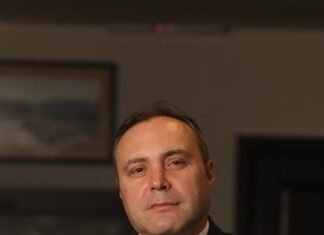Viktor Orbán’s Perspective on Romania’s New Leadership and Economic Challenges
Viktor Orbán, the Prime Minister of Hungary, has expressed a strong desire to engage in a comprehensive discussion with Romania’s newly elected president. His remarks highlight a willingness to foster dialogue and collaboration between the two neighboring countries. This comes at a time when Romania faces significant challenges, particularly with respect to its economy.
In his comments, Orbán acknowledged the complexities of the situation that the Romanian government has inherited. He noted that the new administration is grappling with a heavy legacy that requires careful navigation. The economic landscape, in particular, presents numerous difficulties that he does not envy. This sentiment underscores an understanding of the significant obstacles Romania must tackle, including rising inflation, budget deficits, and the impacts of external economic pressures.
Orbán’s intention to discuss these issues is notable, especially given the historical context of Hungary-Romania relations, which have seen both cooperation and tension over the years. Engaging with the new leadership indicates a potential shift towards more constructive dialogue. By reaching out early, Orbán may be signaling Hungary’s readiness to collaborate on shared challenges, such as economic recovery and regional stability.
The economic issues facing Romania are multifaceted. The country has been navigating a challenging fiscal environment, with the pandemic exacerbating existing vulnerabilities. As Romania seeks to stabilize its economy and promote growth, international cooperation could be key. Orbán’s openness to discussions could facilitate the exchange of ideas and strategies that might benefit both nations in the long run.
In addition to economic challenges, the new Romanian government will need to address various social and political issues. Public sentiment around governance, political stability, and public services will be crucial in shaping the effectiveness of the new administration. Orbán’s acknowledgment of these challenges displays not just a political interest, but also an awareness of the broader implications of government performance on citizen satisfaction and national stability.
As Hungary and Romania share a border and cultural ties, fostering a stronger relationship may lead to better outcomes for both countries. Orbán’s proactive approach may help pave the way for discussions on trade agreements, energy cooperation, and security strategies, all of which could enhance regional ties and economic prosperity.
Orbán’s reflections serve as an important reminder of the interconnectedness of European countries. The challenges faced by one nation can have ripple effects on its neighbors, reinforcing the importance of collaboration. By initiating a dialogue with Romania’s new president, Orbán may be setting the stage for a more unified approach to tackling economic challenges.
In conclusion, Viktor Orbán’s eagerness to engage with Romania’s new leadership reflects a pragmatic recognition of the complexities inherent in governance today. His comments convey both support and a keen understanding of what lies ahead for Romania. As both nations navigate their futures, the potential for cooperative efforts could emerge, leading to enhanced stability and economic progress in the region. This move by Orbán might be a significant step in strengthening Hungary-Romania relations, emphasizing the importance of mutual support and dialogue in addressing shared challenges.






